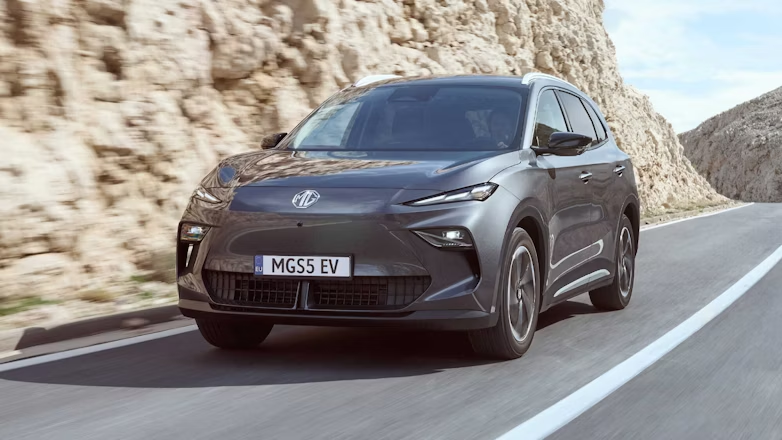In recent years, Brazil has emerged as a surprising leader in the electric vehicle (EV) revolution, capturing international attention for its rapid adoption and innovative approaches. As of 2023, Brazil is not only powering up its green economy but also setting a precedent for emerging markets worldwide. According to Bloomberg Green, the Brazilian EV market saw a staggering 30% increase in sales over the past year, making it one of the fastest-growing EV markets globally. In this article, we’ll explore how Brazil is spearheading this transformation, diving into the factors driving its success, the challenges it faces, and what the future holds for this South American giant.
Brazil’s Electric Vehicle Revolution: Key Drivers
Government Initiatives and Policies
Brazil’s EV market owes much of its growth to robust government initiatives and policies aimed at fostering a sustainable future. In 2023, the Brazilian government introduced a series of incentives, including:
- Tax Breaks and Subsidies: Reduction in import taxes for EVs and components, making them more affordable for consumers.
- Investment in Charging Infrastructure: A $50 million investment plan to expand the country’s EV charging network, as reported by Reuters Mobility.
- Stringent Emission Regulations: Aligning with global standards, Brazil has implemented stricter emissions regulations to encourage the shift from fossil fuels to electric power.
These policies have not only incentivized local manufacturers but have also attracted international players like Tesla and BYD to invest in the Brazilian market.
Technological Advancements in Local Manufacturing
Brazil’s automotive industry is leveraging technological innovations to enhance EV production. Companies like Volkswagen and Nissan have established local assembly lines, focusing on:
- Battery Production: Collaborating with tech leaders to develop advanced lithium-ion batteries suitable for the tropical climate.
- Vehicle Design: Customizing models to cater to local preferences and road conditions, such as the compact and efficient Nissan Leaf, popular in urban areas.
According to a report by AutoCar, these advancements have enabled Brazil to reduce production costs and improve the quality of its EV offerings, making them more competitive in the global market.
Overcoming Challenges: Infrastructure and Consumer Awareness
Expanding Charging Infrastructure
One of the significant hurdles for Brazil’s EV market has been the lack of charging stations. However, the tide is turning with:
- Public-Private Partnerships: Collaborations between the government and private companies to install fast-charging stations along major highways.
- Solar-Powered Stations: Innovative projects like solar-powered charging stations, which harness Brazil’s abundant sunlight, as highlighted by PV Magazine.
These initiatives are crucial in dispelling range anxiety, a common concern among potential EV buyers.
Raising Consumer Awareness
Educating the public about the benefits of EVs is pivotal to increasing adoption rates. Efforts in this area include:
- Nationwide Campaigns: Government-led campaigns promoting the environmental and economic advantages of EVs.
- Test Drive Events: Automakers organizing events to allow consumers to experience EVs firsthand.
InsideEVs reports that these strategies have significantly boosted consumer confidence, resulting in a notable rise in EV registrations.
Practical Guide for Potential EV Buyers in Brazil
What to Compare When Buying an EV
When considering an EV purchase in Brazil, it’s important to compare:
- Battery Range: Opt for models offering a range suited to your daily commute and lifestyle.
- Charging Options: Evaluate the availability of charging stations in your region and home charging solutions.
- Cost of Ownership: Consider the long-term savings on fuel and maintenance compared to traditional vehicles.
How to Charge Your EV
Charging your EV in Brazil is becoming increasingly convenient with several options:
- Home Charging: Install a home charger for overnight charging, providing the most cost-effective solution.
- Public Charging Stations: Utilize the growing network of fast chargers available in urban areas and along highways.
For detailed information on charging points, apps like PlugShare provide real-time data on station locations and availability.
Brazil’s Bright Future in the Global EV Landscape
Brazil is poised to play a pivotal role in the global EV market. The combination of government support, technological advancements, and a growing consumer base positions Brazil as a trailblazer among emerging markets. As reported by CleanTechnica, the country’s commitment to a sustainable future is evident in its ambitious goal of having 1.5 million EVs on the road by 2030.
In conclusion, Brazil’s journey in the EV sector exemplifies how emerging markets can lead the charge towards a sustainable future. By embracing innovation and fostering a supportive environment, Brazil is setting a benchmark for other nations to follow. If you’re considering joining this green revolution, now is the time to explore the electrifying possibilities that the Brazilian EV market has to offer. What do you think the next decade holds for Brazil’s EV industry? Share your thoughts in the comments below!

